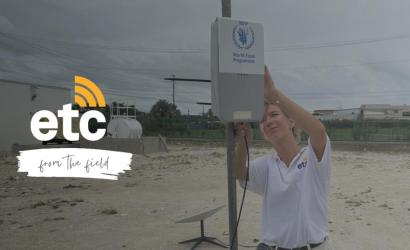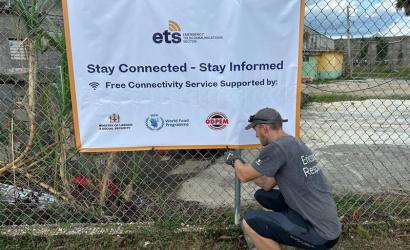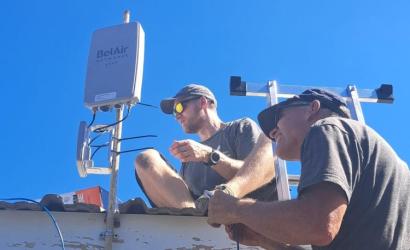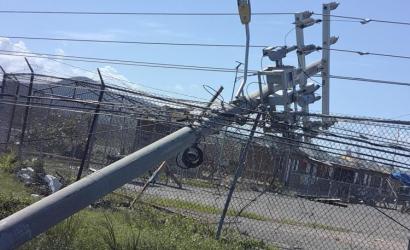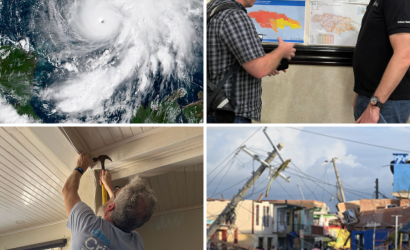Jamaica
Jamaica is the third largest island in the Caribbean and the largest English-speaking one, located 145 km south of Cuba and 160 km southwest of Haiti. It spans 235 km by 80 km, covering 10,991 sq. km, with a population of 2.8 million.
On 3 July 2024, Hurricane Beryl—June’s strongest Atlantic storm on record—caused deadly winds, flooding, and severe infrastructure damage. Recovery is ongoing, and the recent impact has heightened focus on emergency preparedness and telecom resilience.
Hurricane Melissa made landfall on 28 October 2025 as the most powerful storm in Jamaica’s history. It weakened slightly to Category 4 but caused widespread damage across all parishes, including flooding, blocked roads, and downed utility poles. Over 500,000 people have been evacuated as the storm moves toward Cuba.
Disaster response is led by the Office of Disaster Preparedness and Emergency Management (ODPEM), with support from local authorities and international partners. The Caribbean Disaster Emergency Management Agency (CDEMA) coordinates the regional response alongside national emergency teams.
The ETC has not been formally activated in Jamaica but remains engaged through regional preparedness. In response to Hurricane Melissa, Global ETC, Caribbean ETC, and the WFP Caribbean Multi-Country Office are ready to support with assessments and coordination.
ICT Profile
Office of Disaster Preparedness and Emergency Management (ODPEM)
Ministry of Science, Energy, Telecommunications and Transport
Spectrum Management Authority (SMA)
2.827 million (World Bank 2022)
Jamaica is the third largest of the Caribbean islands, and the largest English-speaking island in the Caribbean Sea. Situated 145 kilometres south of Cuba, 960 kilometres south of Florida, USA, and 160 kilometres south-west of Haiti, Jamaica is approximately 235 kilometres long, 80 kilometres wide, and has an area of 10,991 square kilometres.
Jamaica has a population of 2.827 million people and known for its strong sense of self identity expressed through its music, food and rich cultural mix. Jamaica's influence extends far beyond its shores. She got her independence from Britain in 1962 and is politically stable though facing both social and economic challenges.
On 03 July, Hurricane Beryl―the strongest hurricane in the history of the Atlantic in the month of June― lashed across Jamaica, as Category-5 storm, with devastating winds, life-threatening storm surges, more than 12 hours of heavy rain which caused seven fatalities and widespread infrastructure damage, power outages, and disruption to water supplies and telecommunications. Officials and residents are assessing the damage after an island-wide curfew was lifted early on Thursday.
Jamaican Dollar
16
106
15.02
106.2
55.4
64.4%
The Disaster Risk Management Act 2015
This Act establishes the Office of Disaster Preparedness and Emergency Management (ODPEM), as a corporate body, which shall: (a) advance disaster preparedness and emergency management measures in Jamaica by facilitating and coordinating the development and implementation of integrated disaster management systems; and (b) institute measures as may be necessary for mitigating disasters.
The Telecommunications Act (2000)
The Telecommunications Act (2000) created the Spectrum Management Authority (SMA). Part IV, Sections 20-26 details the regulation of the spectrum by the Minister and the role of the Authority in advising the Minister on matters related to spectrum management. In summary, the fundamental role and responsibility of the Authority under the Telecommunications Act is to ensure the efficient use of the radio frequency spectrum. This includes advising the Minister on the allocation of the spectrum for various services (frequency allocation chart); methods for assigning the spectrum to users; issuing of licences authorizing the use of specified portions of the spectrum; and establishment of procedures for ensuring the compliance by licensees with respect to the use of the spectrum.
Jamaica Civil Aviation Authority (JCAA) Unmanned Aircraft (UA) Guidelines
In order to ensure the safe operation of Unmanned Aircrafts (UAs) within the Jamaican air space, operators must observe the guidelines established by the Jamaica Civil Aviation Authority (JCAA).The guidelines are outlined on the JCAA official website and apply to two categories of operators.
1. Recreational UA operators or Hobbyists – Persons who operate model aircraft or UAs for recreational purposes.
2. Professional (commercial & non-commercial) operators – persons or companies which operate UAs for non-recreational purposes, including business-related activities such as, but not limited to, aerial photography, surveillance, geometric surveys, power line inspections, crop observations and research and development.
